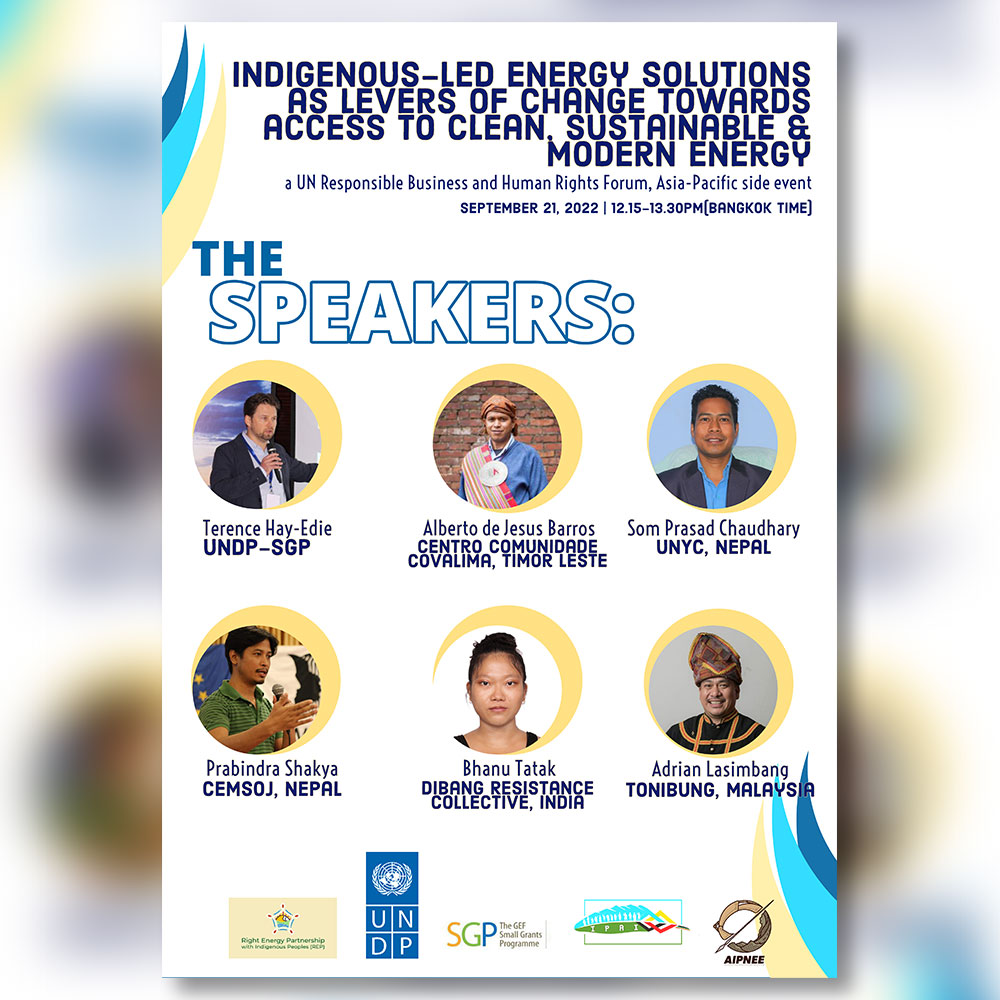
Description of the event:
According to the OECD and the International Energy Agency 14% of the world’s population currently has no access to electricity. 84% of these people live in rural areas. Indigenous peoples comprise 15% of the world’s extreme poor, while representing only 5% of the global population – and make up a staggering one-third of the world’s 900 million extremely poor rural people (IFAD 2018). Indigenous Peoples are therefore a critical demographic that needs to be put at the center of the global dialogue on energy, if SDG 7 (ensuring access to affordable, reliable, sustainable and modern energy) is to be achieved.
Despite this fact, Indigenous Peoples suffer invisibility when it comes to our understanding of energy access. There is little consistent and comparable disaggregated data available to provide a clear global picture of Indigenous Peoples’ access to energy in contrast to non-indigenous populations. Even major reports from key initiatives aligned with SDG 7 either don’t mention, or only superficially refer to, Indigenous Peoples and fail to examine their unique challenges as a distinct group regarding energy access.
Many indigenous territories have tremendous wind, solar, biomass and geothermal resources, and there are varying opinions as to whether energy-related climate change mitigation activities are having a positive or negative impact on local and indigenous communities. Research suggests that problems can arise when Indigenous Peoples are not involved or consulted in the development and implementation of energy alternatives.
It is also important to note that there are indigenous communities who are developing, implementing and maintaining their own energy systems. Such systems developed by indigenous communities need to be recognized and acknowledged in global and national energy policies. Energy policies need to be less restrictive, include decentralized solutions and shift towards a bottom-up approach instead of a market-based and top- down model. Additionally, Indigenous Peoples and local communities must be part of the decision-making process.
Along with lack of and reliable access to clean energy, it will be pertinent to note here that Indigenous Peoples are disproportionately disadvantaged by large-scale renewable energy projects. Their territories often host renewable energy projects but their human rights are continuously violated, which results in conflicts, displacements, destruction of livelihoods & environment and undermines their self-determination. These abuses include land rights disputes, such as in Nepal, Kenya, North East India, killings of indigenous activists opposing a hydroelectric power plant in Guatemala, violation of the right to Free, Prior and Informed Consent in the Philippines and many more.
To support community led renewable energy projects, REP partnered with the UNDP through their Small Grants Programme (SGP) underpinning indigenous communities in addressing their need on access to energy. The REP-UNDP SGP partnership is piloted in El Salvador, Honduras, Cambodia, Nepal, DRC, Timor Leste and Cameroon. REP is open to partnership with private, govt and CSOs towards clean and modern energy access.
Indigenous peoples are engaging in innovative renewable energy solutions and could be major contributors to solving problems around clean energy access. This event will contribute to the discussions on Goal 17 on partnership and Goal 7 on access to energy.
Expected Outcome
- Highlight the experiences and initiatives of Indigenous Peoples on renewable energy.
- To generate support and partnerships from various stakeholders on indigenous- led energy

